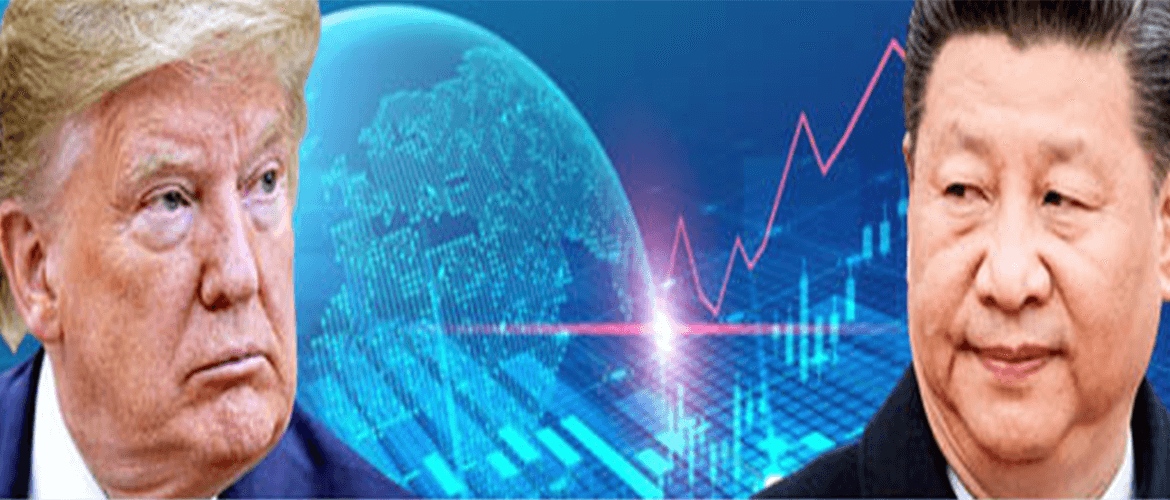Handling-with-care: China's Wolf-warriors
August 31, 2020 | Expert Insights
Shivshankar Menon, India's former National Security Adviser, was a panellist in the 82nd t Synergia Forum’s 18th Virtual Forum on U.S Foreign Policy in Asia: The Road Ahead. This article is based on his views expressed during the discussions.
In the last few years, China's foreign policy has evolved to become increasingly strident, belligerent, and aggressive. India’s former National Security Advisor and Foreign Secretary Shivshankar Menon offers a roadmap to tackle what’s been dubbed China’s 'Wolf-Warrior diplomacy'.
It is most important, he says, to have a clear understanding of China’s end goal and the extent of its territorial and economic ambitions. While China has been the most vocal critic of the United States global hegemony since the cold war, its own actions suggest that it is trying to replicate the path of the U.S.
China is clearly envious of the position of the U.S. and wishes to have an equivalent role, rights, and degree of exceptionality. China's military reforms have sought to adapt the PLA to the American model. It is not that China seeks to overthrow the U.S. and become the sole superpower in world politics. Rather, it is more likely that its goal is to be at par with the U.S., in terms of global influence- both economic and military.
FORGING A UNITED FRONT
Mr Shivshankar Menon mooted the idea of a united global front to confront China. There is a reason; China prefers to engage in bilateral negotiations, for it knows that its weakness lies in its slim list of allies when compared to that of the U.S. One way to achieve this united front is by revitalising institutions like the East Asia Summit and the Trans-Pacific Partnership (TPP).
However, in any joint attempt to stand up to China, American presence would be the centre point. However, Trump administration's actions of leaving the TPP, as part of the ‘America First’ ideology deters any prospect of containing Chinese ambitions jointly.
Sadly, this is a phenomenon which is being seen globally. In Mr. Menon’s opinion, there is a growing shift, internationally, towards similar authoritarians who seek to look inwards and are reluctant to intertwine themselves in global diplomacy. It is imperative that international leaders, starting with whoever occupies the White House in 2021, be flexible and willing to work together to deal with China.
When will the confrontation with China become inescapable, this is a question being asked by everyone. Mr Shivshanker Menon said that the Chinese influence had been primarily directed by economic methods, and it has not yet moved completely towards exercising political influence or acting as a provider of security. However, that time is fast approaching when China makes the shift from economic influence to a political one, and that is the moment when the united front will become necessary.
Let us not forget that China is a necessary part of the world economy — making this nation hurt or resentful by an overreaching action will not end well. It is necessary to find the right incentives that can allow China and the world to benefit from China's economic strength, while concurrently security and territorial integrity are maintained for all stakeholders.
These arguments become crucial against the backdrop of growing Chinese aggression. The most prominent proof of this expansionism is apparent in her claims to the South China Sea. Given that 80 percent of China's energy requirements are satisfied through oil from the Middle East, controlling marine supply lines is of utmost importance to it.
In 2014, China introduced a drilling rig into the contentious region, causing multiple collisions between Chinese and Vietnamese ships. It has not been afraid to communicate its intention not to back down and has militarised the region in defiance of both international legislation and American hostility. Other examples are the Sino-Indian conflict in Ladakh; Tibet Autonomous region; and Sikkim, as China proves that it is not shy of the use of military escalation as a means of expanding its territory and imposing its will.
Chinese foreign ministry officials have been extremely vocal in their defiance in response to accusations from the western world, especially from Mr. Trump. One spokesperson responded to accusations by implying that the U.S. was responsible for the epidemic in Wuhan. The foreign ministry even took action to expel American journalists in response to a critical Wall Street Journal article, an action which received retaliation in kind from the U.S.



Comments